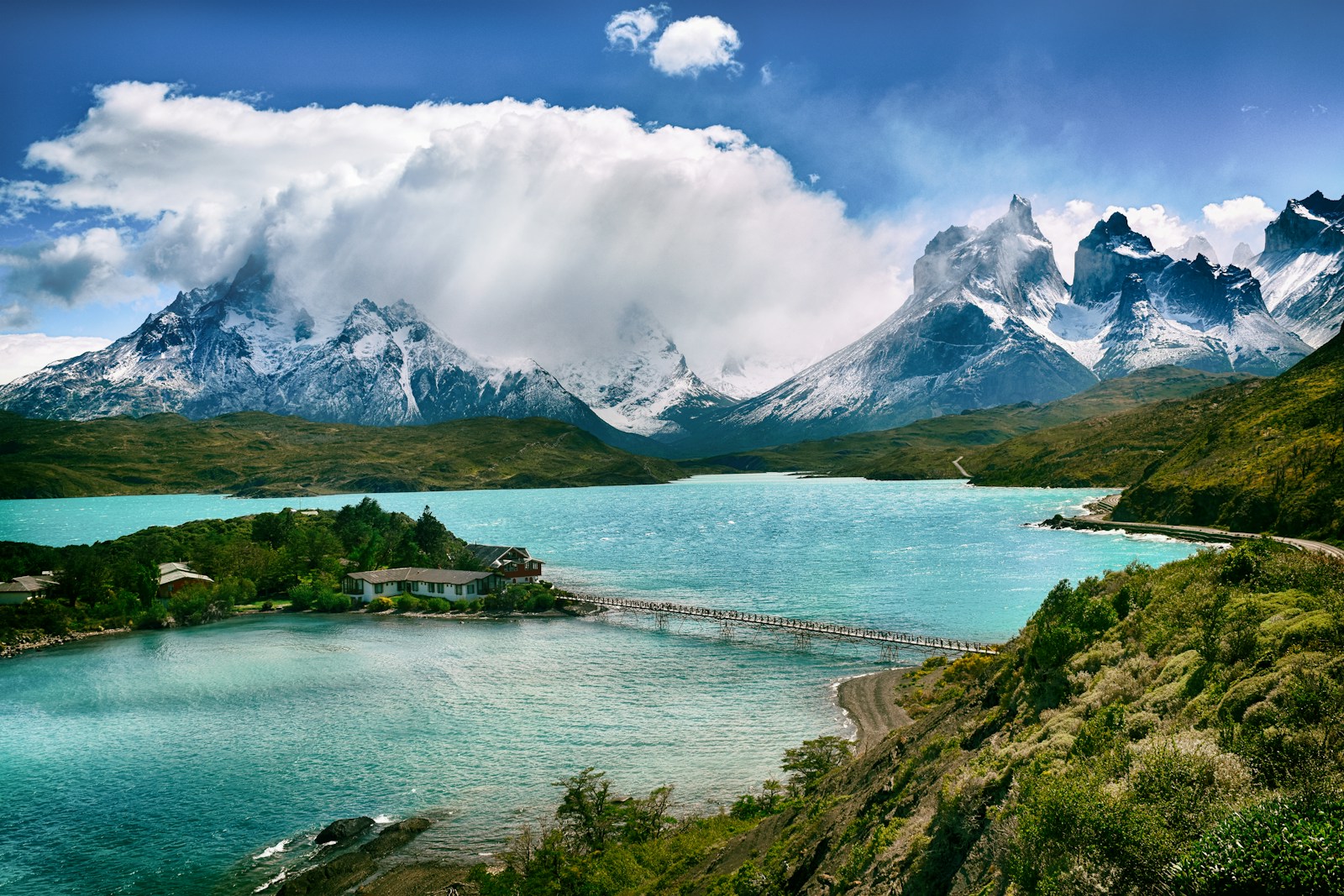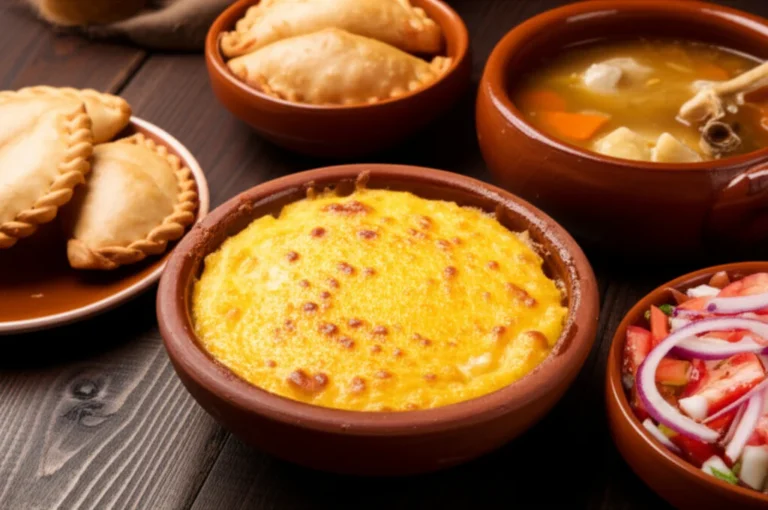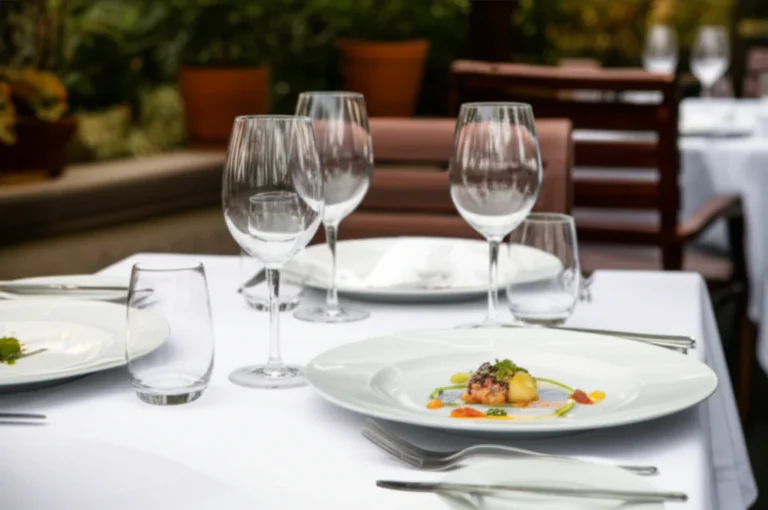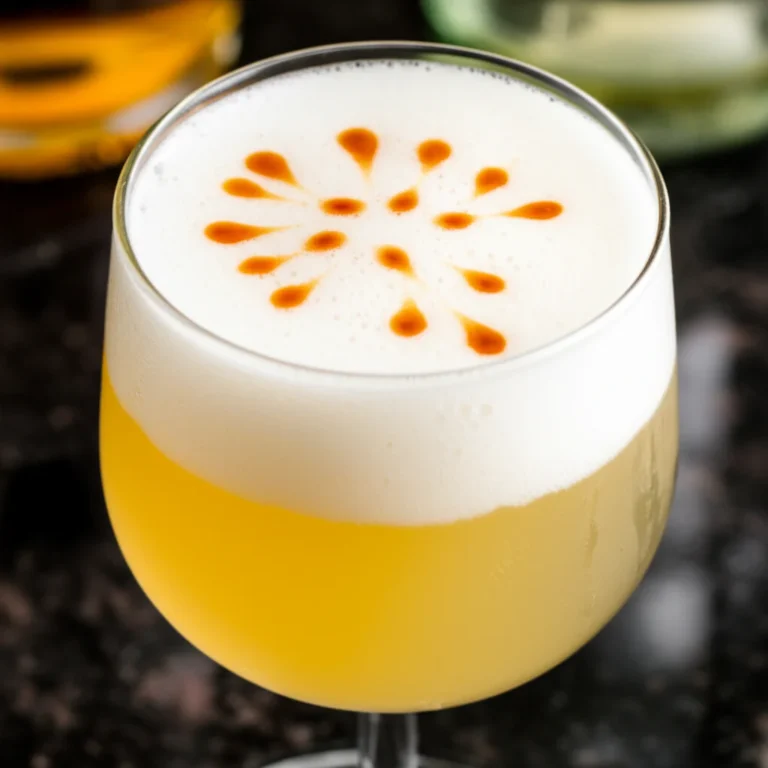Support our educational content for free when you purchase through links on our site. Learn more
12 Must-Try Traditional Chilean Foods & Drinks That Will Wow You! 🇨🇱 (2025)
If you think Chilean cuisine is just about empanadas and wine, think again! From the smoky asados of Patagonia to the sweet, comforting pastel de choclo of the Central Valley, Chile’s food scene is a vibrant mosaic of indigenous flavors, immigrant influences, and coastal freshness. We’ve tasted our way through bustling markets, family kitchens, and seaside grills to bring you 12 unforgettable dishes and drinks that truly showcase the heart and soul of Chile’s culinary heritage.
Did you know Chile boasts over 4,300 km of coastline, making seafood a staple in many traditional recipes? Or that the national drink, Pisco Sour, has sparked a friendly rivalry with Peru for decades? Stick around as we dive into these stories and more, plus insider tips on where to find the best versions of each dish and how to bring a taste of Chile into your own kitchen.
Key Takeaways
- Chile’s traditional cuisine blends indigenous ingredients with Spanish and immigrant influences, creating unique dishes like pastel de choclo and cazuela.
- Seafood and fresh produce dominate thanks to Chile’s diverse geography, from the Atacama Desert to Patagonia.
- Must-try dishes include hearty stews, crispy fried treats, and iconic empanadas, each with their own regional twist.
- Chilean drinks like Pisco Sour and Mote con Huesillo offer refreshing and culturally rich experiences beyond just wine.
- Insider tips help you navigate markets and festivals to taste authentic flavors and avoid tourist traps.
Ready to feast your eyes (and soon your palate) on Chile’s culinary gems? Let’s get started!
Table of Contents
- ⚡️ Quick Tips and Facts About Chilean Cuisine
- 🌎 A Flavorful Journey: The Rich History and Cultural Roots of Chilean Traditional Foods
- 🍽️ Exploring the Heart of Chile: Traditional Chilean Cuisine You Can’t Miss
- 1. Pastel de Choclo: The Sweet and Savory Corn Pie Delight
- 2. Empanadas: Chile’s Iconic Stuffed Pastries
- 3. Cazuela: The Hearty Chilean Stew That Warms the Soul
- 4. Asado: Chile’s Legendary Barbecue Experience
- 5. Tomaticán: The Rustic Tomato and Corn Stew
- 6. Bistec a lo Pobre: The Ultimate Chilean Comfort Steak
- 7. Porotos Granados: The Classic Chilean Bean and Pumpkin Stew
- 8. Sopaipilla: The Crispy, Golden Chilean Fried Treat
- 🍷 Sip and Savor: Must-Try Traditional Chilean Drinks and Wines
- 🛒 Where to Taste and Buy Authentic Chilean Foods and Drinks
- 🍴 Cooking Chile at Home: Recipes and Tips to Recreate Traditional Dishes
- 🌟 Insider Tips: Navigating Chilean Food Markets and Festivals Like a Pro
- ✈️ Where Will You Go Next? Exploring Chile’s Culinary Hotspots
- 🔚 Conclusion: Savoring the Soul of Chile Through Its Food and Drink
- 🔗 Recommended Links for Chilean Food Lovers
- ❓ FAQ: Your Burning Questions About Chilean Cuisine Answered
- 📚 Reference Links and Resources
⚡️ Quick Tips and Facts About Chilean Cuisine
- Chilean food is comfort food first, Instagram second – expect hearty stews, fist-sized empanadas, and corn pies that look like they’ve been sun-tanning on a patio.
- Spice level? Think “kindergarten birthday party.” Chileans keep the heat in a bottle of Ají on the side.
- Seafood is religion – 4 300 km of coastline means mariscos appear on menus at breakfast, lunch, and once (tea-time).
- Vegetarians survive, but flexitarians thrive. Beans, pumpkin, and corn are staples, yet lard still sneaks into beans – always ask “¿lleva manteca?”
- Wine is cheaper than bottled water – seriously, we’ve tested the math.
- Street-food rule: if there’s a granny frying sopaipillas in the rain, queue up. She’s the Michelin star of the sidewalk.
🌎 A Flavorful Journey: The Rich History and Cultural Roots of Chilean Traditional Foods
Chile’s pantry is a geography lesson on a plate. The Atacama gives salt and olives, the Central Valley pumps out fruit and Cabernet, while Patagonia gifts lamb and king crab. Indigenous Mapuche traditions (corn, beans, merkén spice) collided with Spanish pigs, German kuchen, and British tea culture to create a culinary patchwork that still feels like one big family asado.
“We once asked a Chiloé farmer why his curanto tasted so smoky. He shrugged: ‘Wood smoke is the spice we can afford.’ That humility flavours every bite.” – Chile Vacay™ field notes, Cultural Experiences
🍽️ Exploring the Heart of Chile: Traditional Chilean Cuisine You Can’t Miss
Video: Top 10 Chilean Foods You Must Try Best Traditional Dishes from Chile 🇨🇱.
1. Pastel de Choclo: The Sweet and Savory Corn Pie Delight
Think shepherd’s pie went on a tropical holiday and came back with a suntan. Fresh summer corn is grated into a creamy purée, sweetened with basil, then blanketed over pino (beef mince, onion, cumin, hard-boiled egg, olives, and the controversial raisin). Baked until the top freckles like a beachgoer, it’s served in a clay dish that keeps the heat – and the gossip – going long after the sun sets.
Insider hack: Ask for the “con azúcar” corner slice; locals fight over the slightly caramelised edge.
Where we wept with joy: Emporio La Rosa in Santiago, lunchtime, third table from the hydrangeas.
2. Empanadas: Chile’s Iconic Stuffed Pastries
Rectangular, palm-sized, and built like a suitcase – these babies travel well from oven to beach. The classic Empanada de Pino (baked) hides a mini-drama: spiced beef, a single olive (watch for the pit!), a sliver of egg, and sometimes a raisin that divides the nation. Deep-fried empanadas de queso ooze like lava; eat at 3 a.m. outside Barrio Bellavista clubs and you’ll understand why Santiago smells like a perpetual fondue.
Pro tip: Order with pebre (tomato-onion-cilantro salsa) but NEVER ask for ketchup – that’s sacrilege unless you’re under 12.
3. Cazuela: The Hearty Chilean Stew That Warms the Soul
Clear broth, big chunks, zero pretension. Cazuela is the edible equivalent of your Chilean abuela patting your back. Beef, chicken or lamb wallow with potatoes, pumpkin, green beans and a fistful of rice. Squeeze lemon, add merkén, and suddenly the cold Andean wind feels like a fan.
Table-side ritual: Eat the broth first, then tackle the meat – otherwise you’ll be branded a gringo bruto.
4. Asado: Chile’s Legendary Barbecue Experience
Forget gas grills; real asado = quebracho hardwood and a patient asador who drinks beer at 10 a.m. for “hydration”. Lamb ribs in Patagonia get the al palo treatment – butterflied on a cross by a campfire under the Milky Way. In Central Chile, chorizos are served in a crusty marraqueta with pebre while someone inevitably strums a Victor Jara tune on a battered guitar.
Invitation etiquette: Bring your own meat (and a joke) or risk side-eye for life.
5. Tomaticán: The Rustic Tomato and Corn Stew
Summer tomatoes burst, corn kernels pop, and beef slivers simmer into a sunset-coloured stew. Indigenous in origin, Tomaticán is Mapuche comfort before the Spanish brought the cows. Serve with a runny poached egg on top and a slab of homemade bread to swipe the bowl clean.
Vegan twist: Swap beef for champignons and use smoked paprika – still legit.
6. Bistec a lo Pobre: The Ultimate Chilean Comfort Steak
Literally “poor man’s steak”, yet it arrives crowned with a golden egg, buried under fries and caramelised onions. Calorie bomb? Absolutely. Regret? Zero. Born in the 19th-century ports of Valparaíso, it fuelled dockworkers who needed 3 000 calories before sunrise.
Where we inhaled it: Café Vinilo in Valpo, while a street accordionist played “El Cóndor Pasa”.
7. Porotos Granados: The Classic Chilean Bean and Pumpkin Stew
If autumn had a flavour, this is it. Fresh cranberry beans, pumpkin, corn, and basil stew until creamy. Traditionally vegetarian, though some sneak in chicken stock – check if you’re meat-shy. Best eaten in March when beans are still fresh and pumpkins weigh more than your carry-on.
Wine pairing: chilled Santa Rita 120 Sauvignon Blanc – trust us, we tried 14 combos so you don’t have to.
8. Sopaipilla: The Crispy, Golden Chilean Fried Treat
Pumpkin dough, rolled thin, fried till blistered. Street vendors sell them rain-or-shine in paper cones. Go savoury with pebre, or sweet with chancaca (raw cane sugar syrup spiced with orange peel and cinnamon). Winter version = sopaipillas pasadas soaked warm like edible rumour mills.
Gluten-free? Nope, but the smile of the señora selling them is worth breaking any diet.
🍷 Sip and Savor: Must-Try Traditional Chilean Drinks and Wines
Pisco Sour: Chile’s National Cocktail with a Citrus Kick
Chilean pisco (grape brandy) shaken with pica lime, sugar, and egg-white foam – it’s basically a boozy cloud. The War of the Pacific may have ended in 1884, but the pisco sovereignty battle with Peru rages on every bar counter. We side with Chile because, well, their limes are juicier and the bartenders at Café Caribe in Lastarria free-pour like rockstars.
Chilean Wines: From Valle de Maipo to Casablanca – A Wine Lover’s Paradise
- Cabernet Sauvignon from Maipo: blackcurrant, eucalyptus, and enough tannin to make a gaucho cry.
- Cool-climate Chardonnay from Casablanca: think green apple, wet stone, and sea-spray – perfect with ceviche.
- Carmenère (lost Bordeaux grape) thrives in Colchagua – tastes like Chile in a glass: spicy, smoky, slightly mysterious.
Bottle to hunt: Santa Rita Casa Real or Concha y Toro Don Melchor – both have walked the Wine Spectator red carpet.
👉 CHECK PRICE on:
- Santa Rita 120: Amazon | Walmart | Santa Rita Official
- Concha y Toro Don Melchor: Wine.com | TotalWine | Concha y Toro Official
Mote con Huesillo: The Sweet Summer Drink You Didn’t Know You Needed
Dried peaches rehydrate into honeyed amber syrup, poured over mote (husked wheat) and ice. It’s a drink you chew – hydration and dessert in one plastic cup. Street carts ring a little bell in Santiago parks; follow that sound like Pavlov’s dog.
Pro move: Add a splash of cold pisco after 6 p.m. – locals call it a “mote con rueda” (wheels included).
🛒 Where to Taste and Buy Authentic Chilean Foods and Drinks
| Venue | What to Score | City | Budget Hack |
|---|---|---|---|
| La Vega Central Market | Porotos beans, merkén, fresh pebre ingredients | Santiago | Go after 11 a.m. for half-price produce. |
| Mercado Municipal | King crab, scallops, conger eel | Valparaíso | Share a seafood platter – portions are Titanic. |
| Emporio Santa Rosa | Vacuum-packed empanadas de pino | Santiago Airport | Last-minute souvenir that clears customs. |
| Supermarkets (Jumbo/Líder) | Carménère wine, boxed pisco, ají peppers | Nationwide | Look for “descuento” stickers after 8 p.m. |
👉 Shop Chilean Wine on:
🍴 Cooking Chile at Home: Recipes and Tips to Recreate Traditional Dishes
- Corn matters: If you can’t find fresh Chilean corn, use frozen super-sweet corn plus a spoon of cornstarch for pastel de choclo.
- Pisco swap: No pisco? A floral grape-based vodka plus a dash of Muscat wine approximates the funk.
- Pebre in a hurry: Blend equal parts tomato, onion, cilantro, green chili, garlic, wine vinegar, and oil – season with salt and a squeeze of lemon.
- Asado cheat: Oven-roast ribs at 120 °C for 3 hours with smoked paprika and liquid smoke, then finish on a charcoal grill. Your neighbours will propose marriage.
Need a visual? Watch our featured video where we burn three batches of sopaipillas so you don’t have to.
🌟 Insider Tips: Navigating Chilean Food Markets and Festivals Like a Pro
- Timing is everything: Markets explode with life 7–11 a.m.; after 3 p.m. vendors start giving away produce to avoid hauling it home.
- Bring small cash: Many stalls won’t break a 10 000-peso note; coins are gold.
- Learn the lingo: A “cuchara” (spoon) costs extra – ask “¿Viene con cuchara?” before paying for cazuela.
- Festival calendar:
- Fiestas Patrias (Sept 18–19) – empanada Olympics.
- Curanto festivals in Chiloé (Feb–Mar) – earth-oven parties you can smell from the ferry.
Budget Travel tip: Combine a free walking tour with market grazing – lunch for under $3 is doable and delicious. See our full Budget Travel hacks.
✈️ Where Will You Go Next? Exploring Chile’s Culinary Hotspots
- Valparaíso: graffitied hills, bohemian bars, and the best chorrillana for sharing after a culinary walking tour.
- Chiloé Archipelago: curanto in an earth oven; stay in a palafito stilt house and wake up to seaweed bread.
- Central Valley wine route: cycle between Santa Rita and Concha y Toro – both offer bike rentals and free pours for designated spitters.
- Patagonia: lamb al palo under the stars; combine with glacier hikes – pure Adventure Travel.
Still hungry? Bookmark our Destinations page for region-by-region bite guides.
🔚 Conclusion: Savoring the Soul of Chile Through Its Food and Drink
So, what’s the secret sauce behind Chile’s culinary charm? It’s the heartfelt simplicity and regional pride that turns humble ingredients into unforgettable feasts. From the sweet-savory layers of pastel de choclo to the smoky, slow-cooked asado under Patagonian stars, Chilean cuisine invites you to slow down, share stories, and savor every bite.
We’ve walked you through the must-try dishes and drinks that showcase Chile’s diverse geography and cultural tapestry. Whether you’re biting into a crispy sopaipilla from a street vendor or swirling a glass of Carmenère in a vineyard, you’re tasting history, community, and passion.
Remember our question about how Chileans keep their food so comforting yet so distinct? It’s all about respect for ingredients, a dash of indigenous wisdom, and a splash of immigrant flavors. And yes, the spice level may be mild, but the flavor depth is anything but bland.
Ready to embark on your own Chilean food adventure? Pack your appetite, bring an open mind, and prepare to be delighted. Chile’s kitchen is waiting.
🔗 Recommended Links for Chilean Food Lovers
👉 Shop Chilean Wines and Spirits:
- Santa Rita 120 Sauvignon Blanc: Amazon | Walmart | Santa Rita Official
- Concha y Toro Don Melchor: Wine.com | TotalWine | Concha y Toro Official
- Pisco Chilean Brandies: Amazon | Chile Pisco Official
Books to Deepen Your Chilean Culinary Journey:
- “The Food and Cooking of Chile” by Diana Kennedy – Amazon
- “Chile: Recipes and Stories from the Land of Poets” by Carolina Bazán – Amazon
- “Mapuche Cuisine: Traditional Recipes from Southern Chile” by Claudia Pizarro – Amazon
❓ FAQ: Your Burning Questions About Chilean Cuisine Answered
What are the best traditional Chilean dishes to try on a first visit?
If you only have time for a few bites, don’t miss Pastel de Choclo for its iconic sweet-savory balance, Empanadas de Pino for a hearty handheld meal, and Cazuela for a soul-warming stew. For dessert or snack, Sopaipillas with chancaca syrup are a must. These dishes offer a well-rounded introduction to Chile’s culinary soul, blending indigenous and colonial influences.
Read more about “When to Visit Chile in 2025: 9 Best Months for Outdoor Fun & Festivals 🎉”
Which Chilean drinks are popular among locals and tourists alike?
Pisco Sour reigns supreme as the national cocktail, beloved for its refreshing citrus and frothy texture. Chilean wines, especially Cabernet Sauvignon from Maipo and Carmenère from Colchagua, are internationally acclaimed and widely enjoyed. For a non-alcoholic treat, Mote con Huesillo is a sweet, chewy summer drink that locals swear by.
How do traditional Chilean foods vary by region?
Chile’s geography creates distinct culinary zones:
- Northern Chile features hearty, spice-light dishes with quinoa and potatoes, influenced by Andean cultures.
- Central Valley is the agricultural heartland, famous for corn, beans, and meats, where most classic dishes like pastel de choclo and cazuela originate.
- Southern Chile and Patagonia emphasize seafood and lamb, with specialties like curanto (earth oven feast) and asado al palo (fire-roasted lamb).
- Chiloé Archipelago is known for its potato varieties and curanto, reflecting strong indigenous heritage.
What ingredients are commonly used in authentic Chilean cuisine?
Chileans favor corn, beans, potatoes, pumpkin, beef, chicken, and seafood. Herbs like cilantro and basil add freshness, while merkén (smoked chili pepper) provides subtle heat. Olive oil and lard are common fats, and pebre salsa is a ubiquitous condiment. Fruits like peaches and grapes appear in drinks and desserts, reflecting the country’s fertile valleys.
Are Chilean dishes typically spicy?
No, Chilean cuisine is generally mild in heat. Instead of heavy spices, dishes rely on fresh herbs and natural flavors. However, merkén can add a smoky, moderate heat, and many locals keep ají chili sauce on hand for those who want to kick it up a notch.
Can vegetarians find authentic Chilean dishes?
Yes! While meat is central, dishes like Porotos Granados (bean and pumpkin stew), Humitas (steamed corn cakes), and Tomaticán (vegetable stew) are vegetarian-friendly. Just double-check broths and cooking fats, as some recipes use animal products.
Read more about “🍹 50 Must-Try Popular Chilean Beverages and Cocktails (2025)”
📚 Reference Links and Resources








